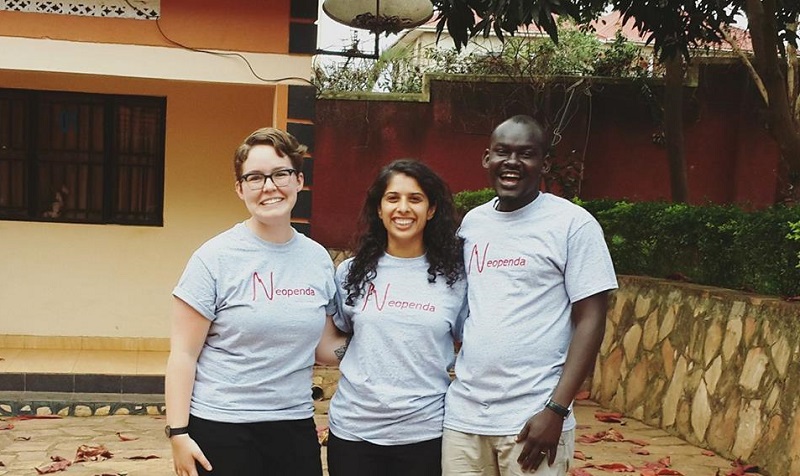Ugandan e-health startup Neopenda is building medical devices for emerging markets, aiming to provide the most vulnerable patient populations in the world with access to high quality healthcare.
Neopenda came about after co-founder and chief executive officer (CEO) Sona Shah spent a few months in western Kenya, and subsequently did some R&D work at a pharmaceutical company.
After becoming interested in the intersection of engineering, healthcare and international development, she studied Biomedical Engineering at Columbia University, where she met Teresa Cauvel.
“We had the unique opportunity to travel to Uganda to conduct a needs assessment, and found that there was such a scarcity of functional medical equipment in so many of the hospital wards, primarily because the commercially available products did not meet the design constraints of low-resource hospitals,” Shah said.
“After the trip, Teresa and I decided to start Neopenda to engineer medical devices for where they are needed most.”
The startup’s first product is a wearable biometric monitoring device that continuously measures four crucial vital signs: pulse rate, respiratory rate, blood oxygen saturation, and temperature. The health data from multiple devices are wirelessly displayed on a tablet in real time, and health workers are alerted when vitals go outside the healthy range.
The centralised system is designed to help over-burdened nurses better manage and provide high quality care to their patients.
“It improves speed of action for newborns in distress, they have the best chance to receive the care they need to survive and thrive. The devices are reusable, designed for ruggedness and ease of cleaning, and are rechargeable with a battery life of several days,” said Shah.
“Over the past several years, we have spent significant time in low-resource newborn wards. We’ve observed, and learned from the healthcare workers, that the staffing and resources available in hospitals are not sufficient to care for the large numbers of critically ill newborns. It is nearly impossible for an overworked nurse to identify when a newborn is in distress because a single nurse can be caring for up to 40 newborns at once, without the tools necessary to provide high quality care.”
It is newborns who suffer most from this strain, as signs of their distress go unnoticed and they often die from preventable causes.
“Patients in distress often go unnoticed due to insufficient resources to measure vital signs at necessary intervals. Nurses must manually count heart beats or breaths – at best every few hours – or share the few available, functioning devices, such as pulse oximeters, which only intermittently measure oxygen saturation and pulse,” Shah said.
This practice fails to meet the WHO’s guidelines for Essential Newborn Care, and is insufficient for early detection of distress and optimal management of common neonatal conditions: prematurity, birth asphyxia, and severe infections.
Neopenda, on the other hand, continuously measures the four crucial vital signs, and is designed as a versatile, out-of-the-box system that is independent of a facility’s infrastructure.
The startup has a variety of backers, having raised non-dilutive capital from from global companies such as Cisco CSR and Vodafone Americas Foundation, and investment from groups such as ADAP Capital.
“With over US$750,000 raised, we have been able to create a fully-functional prototype that we are currently undergoing clinical studies with in Uganda prior to commercialisation in 2019,” said Shah.
“We involve a variety of stakeholders in every step of our process. To date, we have involved over 150 nurses and clinicians across more than 30 hospitals in Uganda in the design of our solution, and will continue to iteratively design our solution with and for our users. Additionally, we have gained significant traction with renowned NGOs who are committed to conducting paid pilots in countries beyond Uganda.”
By designing its solution to work in even the lowest levels of healthcare infrastructures, Neopenda aims to create a scalable system that can be used in any health facility in any emerging market.
“Uganda is our entry point, but we are already engaging NGOs to pilot and scale our solution to other communities,” said Shah. “We also see a natural expansion of our neonatal vital signs monitor to many other patient populations in need of continuous monitoring, and are furthermore building a pipeline of complementary medical devices for commercialisation in the years to come.”


